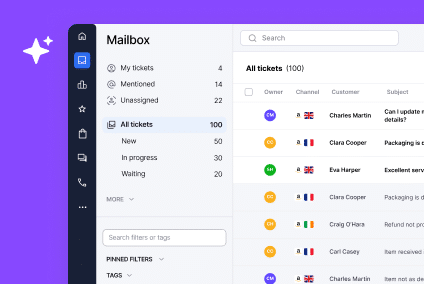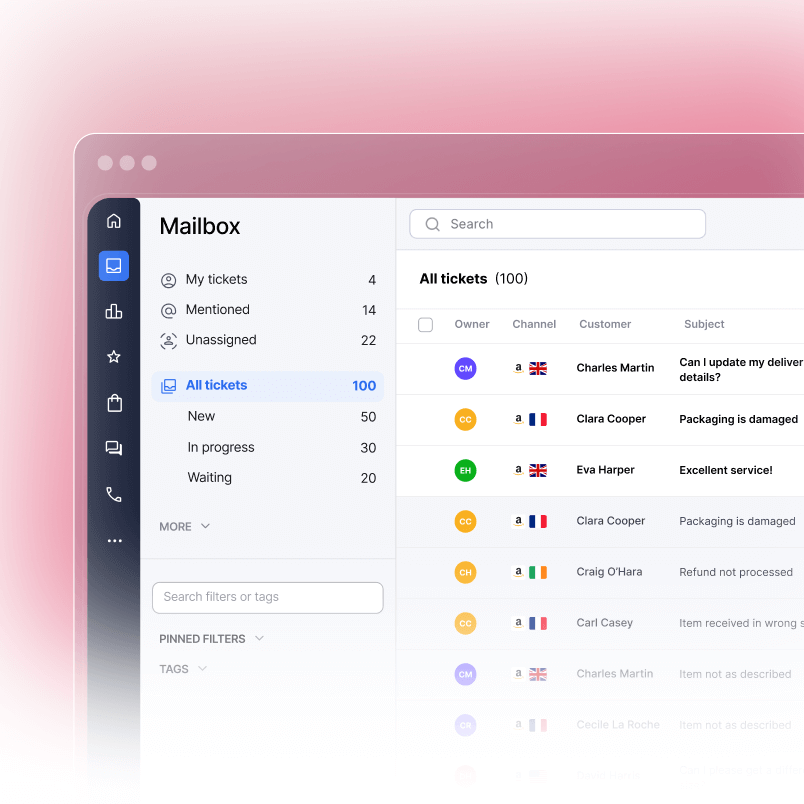The UK eCommerce landscape is experiencing unprecedented growth, with retail sales reaching £177.11 billion in 2024 and 62.1 million users expected by 2025. In this competitive environment, traditional reactive support models are no longer sufficient. British consumers have evolved beyond basic expectations, with 67% expecting responses within two hours and demanding personalised experiences that anticipate their needs.
Bottom line up front: Proactive customer support UK strategies powered by data analytics eCommerce insights are transforming how businesses engage with customers, reducing support tickets by up to 40% whilst significantly boosting satisfaction and retention rates.
The Rise of Proactive Customer Support in UK eCommerce
Traditional customer service follows a simple formula: customers encounter problems, contact support, and receive assistance. However, this reactive approach creates friction and frustrated customers who have already experienced issues.
Proactive customer support UK businesses are implementing represents a fundamental paradigm shift. Instead of waiting for problems to surface, companies use data analytics eCommerce insights to identify potential issues before they impact customers. Research shows that 87% of customers want companies to contact them proactively, and 73% of those contacted proactively reported improved brand perception.
The stakes are particularly high given that 25% to 40% of all calls to UK contact centres are avoidable, whilst 95% of proactive customer service efforts improve retention rates. Companies with high customer satisfaction rates see 200% increase in profitability.
Leveraging Customer Journey Insights for Predictive Support
Successful proactive support relies on analysing multiple data touchpoints across the customer journey. Key indicators include purchase pattern analysis for timely replenishment reminders, behavioural triggers from website navigation and cart abandonment, service history analytics for recurring issues, and delivery logistics data for proactive communication about disruptions.
Businesses implementing predictive customer support have seen operational efficiency improvements of 20-30% and 10-15% boosts in customer satisfaction scores. The technology combines machine learning algorithms that learn from historical data, real-time data processing for immediate interventions, and customer segmentation for targeted support strategies.
The eDesk Customer View for Data Insights platform enables businesses to maintain comprehensive customer profiles that support personalised experiences whilst ensuring data privacy compliance.
Reducing Support Tickets Through Predictive Interventions
The most effective proactive support strategies focus on preventing issues rather than solving them. Key approaches include proactive order updates when delays are detected, educational content delivery based on recent purchases to reduce user error-related requests, and personalised alerts about product recalls or maintenance requirements.
Companies using proactive support strategies report substantial reductions in reactive support needs.By 2025, proactive customer service teams will outnumber reactive customer service interactions, indicating a fundamental shift in how businesses approach customer service.
eDesk Insights for Analytics provides comprehensive analytics enabling businesses to track the effectiveness of their proactive interventions and measure reductions in support ticket volume.
Enhancing Customer Satisfaction with Data-Driven Personalisation
73% of respondents to a 2024 Salesforce study agreed that companies treat them as unique individuals, up from just 39% the previous year. This dramatic increase highlights the growing importance of personalisation in customer service.
Data-driven personalisation involves contextual support using purchase history, preference-based communication respecting customer channel and timing preferences, and predictive product support anticipating assistance needs based on product lifecycle stages.
Proactive support strategies significantly impact customer lifetime value. 81% of customers are more likely to make repeat purchases after a positive experience, whilst 69% of customers will advocate for a company after positive service experiences.
Churn Prevention UK: Using Analytics to Retain Customers
Customer churn prediction represents one of the most valuable applications of proactive support analytics. By analysing patterns such as decreased engagement with marketing communications, reduced purchase frequency, increased support ticket volume, and negative sentiment in customer interactions, businesses can identify at-risk customers and implement targeted retention strategies.
Effective churn prevention UK strategies combine personalised offers using purchase history, proactive problem resolution for customers experiencing repeated issues, and engagement campaigns to re-engage inactive customers with personalised content.
Ethical Data Use and UK GDPR Compliance
Operating proactive support systems in the UK requires careful attention to data protection regulations. The UK GDPR mandates that businesses obtain explicit consent for data collection, ensure data minimisation by collecting only necessary data, provide transparency through comprehensive privacy notices, and enable data control with easy access and deletion methods.
GDPR compliance fosters customer trust, ensuring data safety and fostering loyalty. Key principles for ethical proactive support include purpose limitation, robust data security, and regular compliance audits.
For comprehensive guidance on ethical data practices, refer to eDesk’s Privacy Policy and explore resources on The Importance of Customer Intelligence.
Building Your Proactive Support Strategy
Implementing proactive customer support UK strategies requires a systematic approach: conduct a data audit ensuring UK GDPR compliance, select technology platforms with integration capabilities, train teams to interpret predictive insights, start with simple interventions and gradually expand, and continuously optimise based on analytics.
Essential platform capabilities include integration with multiple data sources, real-time processing for immediate responses, automated workflow management, and comprehensive reporting for effectiveness measurement.
The Future of Proactive Support in UK eCommerce
The proactive support landscape continues evolving rapidly. By 2026, customer service will evolve to offer hyper-personalised interactions, with AI systems capable of understanding human emotions. 37% of businesses plan to use AI to predict customer needs by 2024, indicating widespread adoption of predictive support technologies.
Key developments include artificial intelligence enhancement for deeper customer insights, omnichannel integration for comprehensive customer profiles, and voice analytics for sentiment-based proactive support.
Transform your customer service from reactive to proactive with data-driven insights that anticipate customer needs and prevent issues before they occur. Start your free eDesk trial today and revolutionise your customer support operations.




